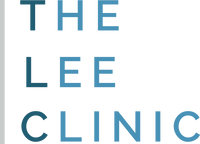
Have you ever heard of “Circadian Rhythm”? Most people by this point have. It acts as a master clock in our brain – a 24-hour cycle that regulates sleep and eating patterns in almost all living beings. It helps us stick to a traditional night-and-day cycle in our lives, as that way of living generally results in the healthiest outcome. However, what you may not know is every organ in your body runs on an internal clock, not just your brain! Specifically speaking, our stomach has an internal clock that can provide amazing health benefits if we listen to it, or prove to have consequences if we don’t. To maintain a healthy standard with our stomach’s circadian rhythm, we engage in something called “Time-Restricted Feeding”.
Time-Restricted Feeding
Our health is very much tied to our circadian rhythm. We are programmed to eat during daylight hours, and to sleep at night. So naturally, it makes sense that our gut should be resting at night, along with the rest of our body. Time-Restricted Feeding is a simple guideline anyone can follow and reap the benefits of. It’s the process of having 13 hours between your last meal in the evening and your first intake of anything other than water on the next day.
13 Hours may sound like a lot at first, but when you break it down, it’s an easy guideline to follow. Most people found it easy to finish their dinner by 7:00 pm and simply delay their first cup of coffee ‘til 8:00 am in the morning. That’s not so hard, is it? For most of this time, you’ll be in your bed sound asleep, letting your body rejuvenate and gain the health benefits of being in sync with your internal clock.
The Benefits of Time-Restricted Feeding
The best part is the health benefits really show! Satcha Panda, PhD, a professor at the Salk Institute in San Diego has demonstrated that following this practice can result in decreased fat mass, increased muscle mass, improved glucose tolerance, improved lipid profiles, decreased inflammation, higher mitochondrial (which produces the energy in our cells) volume, and protection from obesity. This pattern was also investigated by Ruth Patterson, PhD, a researcher at UCLA, who found that in a study of 2500 breast cancer survivors, there was a 40 percent decrease in recurrence in those women who practiced an interval of at least 13 hours of time-restricted feeding daily. All this, just so long as you don’t snack before bedtime! Definitely seems like a worthwhile trade.
The Lee Clinic is here to help!
The Lee Clinic provides many resources to help you sleep better, look better, and feel your best in years! Visit our blog page to receive extra tips on important health benefits in both diet and sleep. Our facility is also a medically-approved Ideal Protein location, and has tons of resources to help you understand your body’s wants and needs. Contact us today and schedule an appointment to improve your health and never look back!
